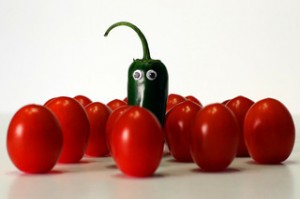 I have commented before on the habit of mind in the arts world that separates “us” and “them,” especially with respect to our communities. Most directly, in Want-Need: “Them”? I suggested that:
I have commented before on the habit of mind in the arts world that separates “us” and “them,” especially with respect to our communities. Most directly, in Want-Need: “Them”? I suggested that:
[W]e need to see our constituencies (and potential constituencies) not as “them.” We need to understand that, together, we are all “us” in the application of the arts to make all our lives better. This requires
- humility (Humilité, Discovering Humility)
- an awareness that the arts are not an end but a means (The Metamission of Arts Institutions, for one), and, above all,
- a self-understanding as partners in service of the common good. (Curators of the Cultural Commons)
Unfortunately, for some this is a radical re-imagining, but it seems to me to be the only path to long-term viability for the industry.
The sense of separation appears to be rooted in an over-focus on the specialness of the arts. Certainly the arts are special and we have high-level expertise in creating, producing, and presenting them. However, when we hold to that specialness as something that sets us apart from our communities–even if it is not a conscious thought–it reduces our value to those communities. Artcentricity is a barrier to being valuable to our communities.
High level expertise is to be commended and admired, but the virtuoso plumber is not likely to think of himself or herself as anything other than a valuable contributor to appropriate (and free-running) pathways for water in the community. I would imagine their sense of specialness provides a valuable sense of self-worth, but it does not get in the way of them fixing a school teacher’s stopped-up sink.
The concept of the prima donna has its origins in the arts, a fact that should give us pause. The words, of course, simply refer to the lead female singer in an opera. Over time, however, it has become so connected to a sense of artistic entitlement that the public understanding of the term is negative. One avoids the prima donna in any field.
For community engagement, this represents a double–or even triple–whammy. community members have been socialized to avoid (or at least be skeptical about) “artistic temperaments.” At the same time artcentricity can cause us to downplay the importance of supporting the community and for some of us the negative vibes we feel from the public about “the arts” or artists push us further from the broad community as a kind of defense mechanism.
The only solution is on our side of the equation. There’s no perceived self-interest outside of the world of the arts to change. To become a deeply appreciated resource, we first need to see ourselves as one part of the “us” that is our community and work to act upon that understanding. The greater good cannot be fully realized without the arts, but the arts need to be intentional about and active in furthering it.
Engage!
Doug
- Photo:


 Some rights reserved by jeffsmallwood
Some rights reserved by jeffsmallwood
